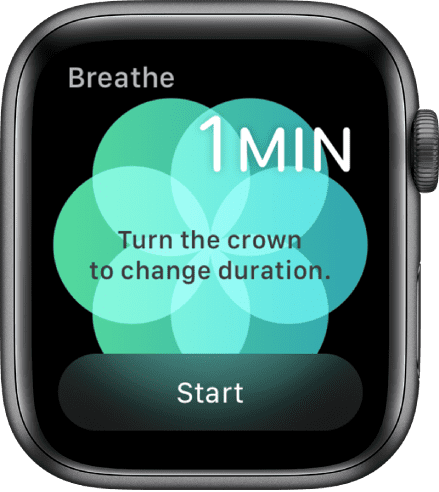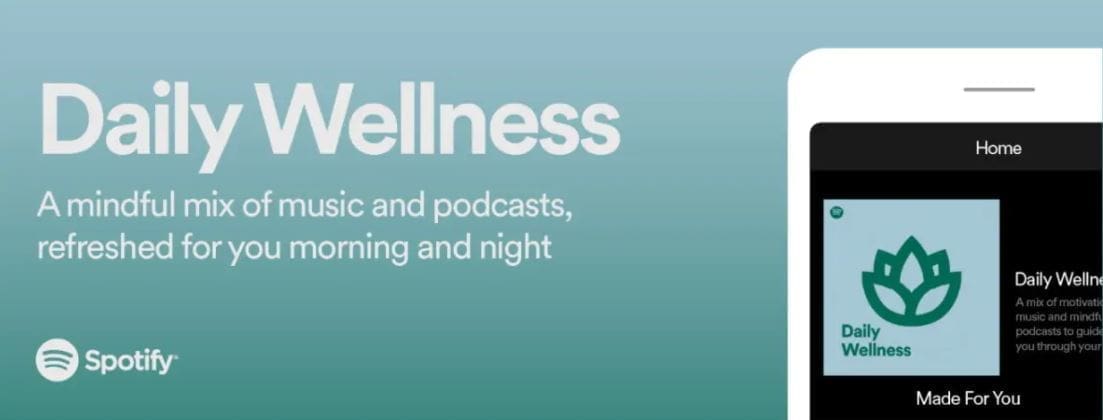As technology plays an ever-greater role in our lives, people naturally worry about the damage it can do to mental health. But tech also can offer solutions, helping people cope with the stress of modern life and live happier lives. Whilst there is no single approach suitable for all, technology can offer a wide range of support services and will have a much more important role to play in the next year as consumers navigate through the fallout of the pandemic.
1. Promoting positive change
The benefits of digital therapy are that they can help remove stigmas around mental health and offer convenience for users. A quarter of UK consumers are planning to use mental health apps/online services more post pandemic. Such services are likely to have greater traction with younger and more vulnerable members of society.
Apps that create structure and routine: Apps and services that take a holistic view of all the inputs that can affect mood such as healthy diets, exercise and sleep can play a crucial role in helping users regulate negative behaviours.
The Flow Depression App, for example, uses behaviour therapy to help users engage with anti-depressant activities and alleviate depression. It is broken down into courses and modules enabling users to develop psychological techniques to manage moods, and incorporates mood trackers and tasks to monitor symptoms as well as receive guidance from a virtual therapist. It comes with an optional companion headset certified for home use that delivers electrical signals to activate and stimulate brain cells. Flow focuses on sleep, nutrition, exercise and meditation.
The Flow depression app and companion headset
Source: Flow
Self-care apps such as eQuoo bring about small behavioural changes that can have a lasting impact on a user’s thought processes, such as managing fear and anxiety. The app uses gamification techniques to help the user better understand their emotions, grow resilience and reduce anxiety.
eQuoo emotional fitness app
Source: eQuoo via Linkedin
2. Improving the relationship between tech and mental health
As technology has grown to become an ever-present part of our lives, consumers have become increasingly aware of the negative effect it can have on their mental health. Nearly two in ten are actively seeking ways to cut down on screen time, rising to over third of the most tech-savvy age group, the 16-24s.
The pandemic has compounded the problem, but with technology ever-present, there is an opportunity for technology to reclaim a more positive role in the lives of consumers.
Using apps to stop using apps: Apps which manage digital usage and encourage the benefits of disconnecting, such as Pause, Offtime or Clearlock, as part of a healthy daily routine could be a useful aid for a young generation under pressure to be ‘always on’.
Offtime app
Source: Offtime.app
Listening to your wrist: The Apple Watch has apps such as Breathe that guides users through breathing exercises. Wearables have become increasingly sophisticated health companions incorporating tools such as blood oxygen sensor monitors and ECG, that can check a heart’s rhythm and electrical activity. It is likely there will be even more increased prominence for apps and sensors to monitor for signs of mental distress on smartwatches going forward.
Apple’s Breathe app
Source: Apple
3. Technology to stimulate the senses
With over half of consumers actively seeking ways to reduce stress, there is an opportunity to use technology to help consumers relax, meditate and reduce anxiety wherever they are and whenever they need it.
Music as therapy: As reported by Mintel’s Music and Other Audio 2020 report, there has been an increase in podcasts and playlists focusing on wellbeing, mindfulness and relaxation as consumers look to deal with the stresses of COVID-19.
In April 2020, Spotify introduced Daily Wellness, a mix of music and podcasts to help listeners find ‘positivity, mindfulness, or peace’ throughout the day.
Spotify’s Daily Wellness playlist
Source: Spotify
The platform has also reported an increase in users searching for ‘chill out’ tunes and playlists, which have been streamed almost 60% more in 2020 compared to 2019. Similarly, self-help and self-care podcasts have seen an increase of over 120%.
Virtual reality as a treatment for phobias: Virtual reality and augmented reality can give consumers access to alternative realities where they can relax, meditate or even treat certain conditions or anxieties in the comfort of their own home.
For instance, if a consumer suffers from anxiety or a fear of heights, gamification can be utilised to powerful effect by enabling virtual world depictions and treatment, with patients learning how to overcome trigger situations virtually, progressing through the problem in a practical rather than theoretical way. Virtual reality has also been successfully trialled to treat a range of phobias such as depression, eating disorders, psychosis, and addiction.






















![[LISTEN] Tech at Mintel: A Tech Leader’s Journey to Success and Inclusion](https://www.mintel.com/app/uploads/2023/08/Tech-at-Mintel-Sound-Waves-Podcast.jpg)





















